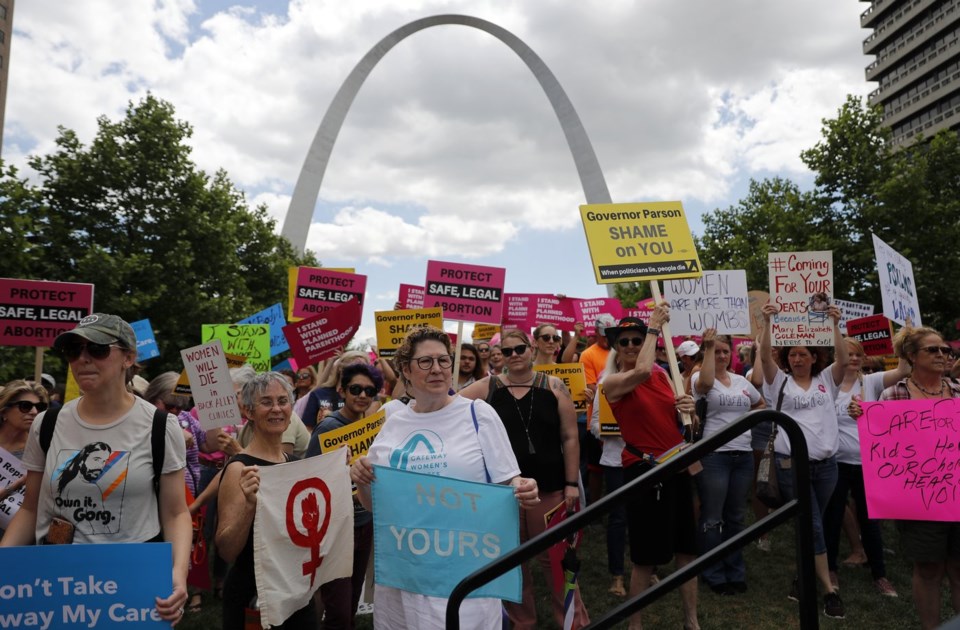COLUMBIA, Mo. (AP) — Both sides of the debate over whether to enshrine abortion rights in Missouri’s constitution have filed last-minute legal challenges hoping to influence how, and if, the proposal goes before voters.
Missouri banned almost all abortions immediately after the U.S. Supreme Court overturned Roe v. Wade in 2022. In response, a campaign to restore abortion access in the state is pushing a constitutional amendment that would guarantee a right to abortion.
Courts have until Sept. 10 to make changes to the November ballot, Secretary of State's office spokesperson JoDonn Chaney said.
Facing the impending deadline, two Republican state lawmakers and a prominent anti-abortion leader last week sued to have the amendment thrown out.
Thomas More Society Senior Counsel Mary Catherine Martin, who is representing the plaintiffs, in a statement said Ashcroft's office should never have allowed the amendment to go on November's ballot. She said the measure does not inform voters on the range of abortion regulations and laws that will be overturned if the amendment passes.
"It is a scorched earth campaign, razing our state lawbooks of critical protections for vulnerable women and children, the innocent unborn, parents, and any taxpayer who does not want their money to pay for abortion and other extreme decisions that this Amendment defines as ‘care,'" Martin said.
Hearings in the case have not yet been scheduled.
The abortion-rights campaign is also suing Ashcroft over how his office is describing the measure.
“A ‘yes’ vote will enshrine the right to abortion at any time of a pregnancy in the Missouri Constitution,” according to ballot language written by the Secretary of State's office. “Additionally, it will prohibit any regulation of abortion, including regulations designed to protect women undergoing abortions and prohibit any civil or criminal recourse against anyone who performs an abortion and hurts or kills the pregnant women.”
A lawsuit to rewrite that language argues that the measure allows lawmakers to regulate abortion after fetal viability and allows medical malpractice and wrongful-death lawsuits.
Ashcroft’s language is “intentionally argumentative and is likely to create prejudice against the proposed measure,” attorneys wrote in the petition.
Chaney said the Secretary of State's office would stand by the measure's current description and that “the court can review that information, as often happens.”
This is not the first time Ashcroft has clashed with the abortion-rights campaign. Last year, Missouri courts rejected a proposed ballot summary for the amendment that was written by Ashcroft, ruling that his description was politically partisan.
The lawsuit filed by the abortion-rights campaign is set to go to trial Sept. 4.
The Missouri amendment is part of a national push to have voters weigh in on abortion since the overturning of Roe v. Wade.
Measures to protect access have already qualified to go before voters this year in Arizona, Colorado, Florida, Maryland, Montana, Nevada and South Dakota, as well as Missouri.
Legal fights have sprung up across the country over whether to allow voters to decide these questions — and over the exact words used on the ballots and explanatory material. Earlier this week, Arkansas’ highest court upheld a decision to keep an abortion-rights ballot initiative off the state’s November ballot, agreeing with election officials that the group behind the measure did not properly submit documentation regarding the signature gatherers it hired.
Voters in all seven states that have had abortion questions on their ballots since 2022 have sided with abortion-rights supporters.
Summer Ballentine, The Associated Press



